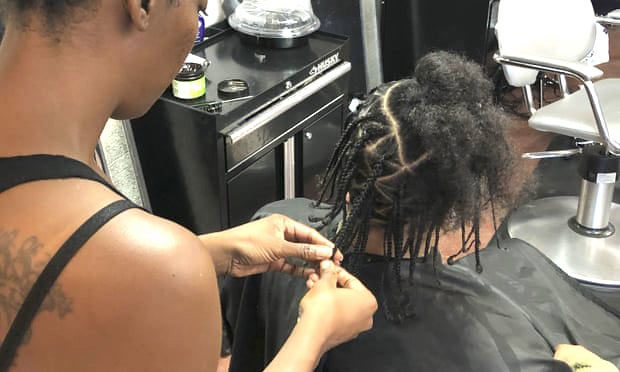Discriminated at work for hairstyle? You may have legal remedies!

AP PHOTO
Q: My new supervisor recently told me that I need to wear my hair in a “more conventional” way because it is distracting other people. My hairstyle is appropriate to my ethnicity and is part of my cultural identity. More importantly, my hair does not interfere with my work. When I said so, my supervisor told me that I may have to look for another job as my look does not fit the company requirements. How do I handle this?
A: Your supervisor is likely engaging in discriminatory conduct and needs to stop. Perhaps you can hand your supervisor a copy of California’s Assembly Bill 188, newly signed into law, which revises California laws concerning the definition of race.
Under existing California laws, it is unlawful to discriminate against employees by, for example, firing or demoting, based simply on the employee’s protected characteristics, such as race, ethnicity, and national origin. The nature of race discrimination may sometimes be subtle and may be overlooked because skin color is not overtly targeted. In recognition of all the insidious ways that race discrimination may be perpetrated by targeting cultural practices instead, California’s lawmakers have recently expanded the definition of “race.”
Under Assembly Bill 188, the definition of race now includes traits or characteristics that are historically associated with race, including hair texture and hairstyles. In explaining the purpose of the new law, the lawmakers noted that “societal understanding of professionalism . . . still is, closely linked to European features and mannerisms, which entails that those who do not naturally fall into Eurocentric norms must alter their appearances, sometimes drastically and permanently, in order to be deemed professional.”
Additionally, dress codes and grooming policies that prohibit natural hair, including afros, braids, twists, and locks, may have a disparate impact on a group of people. “Disparate impact” discrimination occurs when the employer adopts a seemingly neutral policy that applies to all employees, but the policy has a more negative impact on those with a certain protected characteristic. For example, afros, braids, twists, and locks are historically associated with Black individuals. The dress code and grooming policy will therefore more likely affect Black applicants and burden or punish Black employees than any other group. Where hair has historically been one of many determining factors of a person’s race, hair then remains a proxy for race. Therefore, hair discrimination targeting hairstyles associated with race is racial discrimination.
The lawmakers recognize that continuing to enforce a Eurocentric image of professionalism through supposedly race-neutral grooming policies that disparately impact Black individuals and exclude them from some workplaces is in direct opposition to equity and opportunity for all.
California law provides several remedies for victims of employment discrimination. These remedies included: back pay for past lost earnings; front pay for future lost earnings; reinstatement to the job; out-of-pocket expenses; policy changes; reasonable accommodation(s); damages for emotional distress; punitive damages (where the employer’s conduct was especially bad); and attorney’s fees and costs.
The Law Offices of C. Joe Sayas, Jr. welcomes inquiries about this topic. All inquiries are confidential and at no-cost. You can contact the office at (818) 291-0088 or visit www.joesayaslaw.com. [C. Joe Sayas, Jr., Esq. is an experienced trial attorney who has successfully recovered wages and other monetary damages for thousands of employees and consumers. He was named Top Labor & Employment Attorney in California by the Daily Journal, consistently selected as Super Lawyer by the Los Angeles Magazine, and is a Presidential Awardee for Outstanding Filipino Overseas in 2018.

